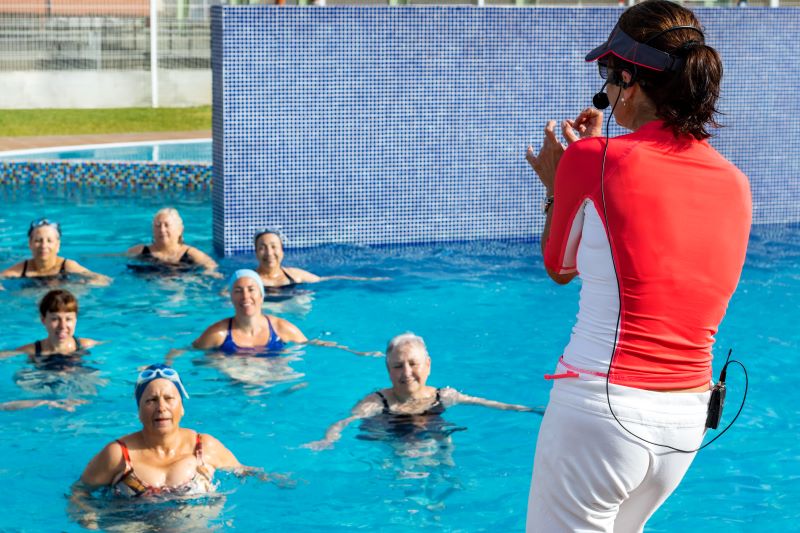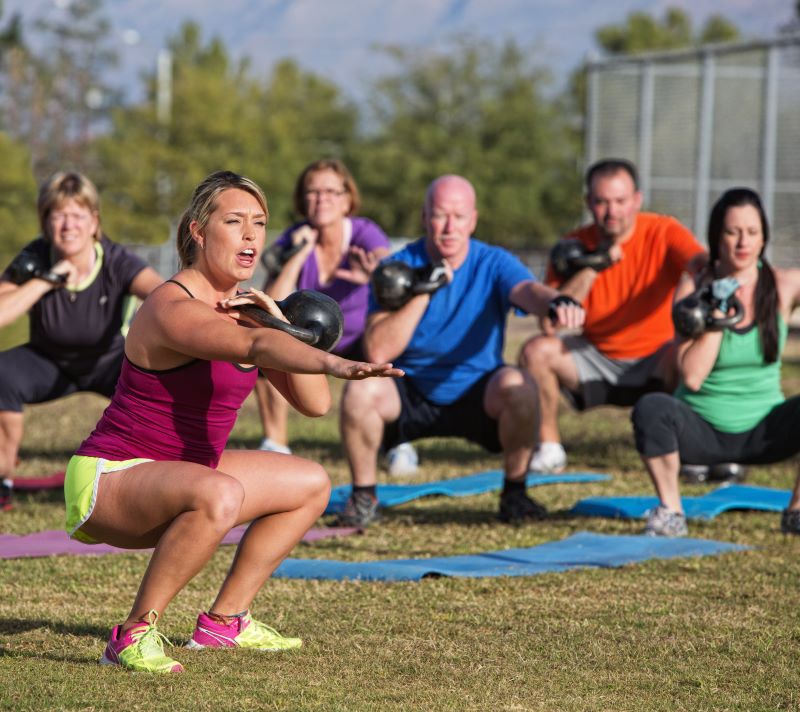People in paid and volunteer roles such as coaches, fitness instructors, group leaders, and even certain positions in sports teams often rely on raising their voices to be heard. Often this is done but just trying to speak louder and studies show these groups may experience serious and ongoing voice disorders and challenges because of this.
Put simply, using a loud voice continuously, without correct voice projection techniques, can be damaging for anyone. If you’re going to avoid issues, you need to train your voice like any other part of your body, or risk losing it.
Who’s at risk of poor vocal fitness?
The vocal role associated with these positions is similar to that experienced by call centre operators and teachers, putting them at higher risk of voice disorders. Yet people in these positions often persist with a strained voice because of:
- Poor voice education
- Faulty equipment
- Apathetic industry or public attitudes to the problem

Signs of vocal problems
The signs that there is a problem with your voice can be obvious, or a slight niggle. These issues may be ongoing, or appear once in a while. It’s time to make change if you notice that, during or after the session, you experience:
- Pain
- Strained or hoarse sounding voice
- Changes in voice pitch (lower or squeaky)
- Difficulty with volume
- Voice loss
- Feeling that you have a lump in your throat or need to clear it regularly
If you regularly experience these symptoms as sporting professional voice users, it is time to take the steps now to safeguard your voice and get some vocal fitness training.
The danger of vocal damage
You may think that a little hoarseness, temporary change in voice pitch is not a big deal or just ‘part of the job’. However, the research consistently shows fitness instructors, coaches, and other group leaders represent a large proportion of those experiencing a voice disorder. Problems associated with those in the sport and fitness industries may include:
- Vocal fold nodules or small growths on the larynx tissues that produce sound
- Chronic laryngitis
- Vocal fold haemorrhage (bleeding) from intense movements
- Vocal strain
- Muscle tension dysphonia, or a change in the sound or feel of the voice because of excessive muscle tension around the larynx
- Vocal fold cysts or benign growths in the larynx that can cause ongoing hoarseness
- Voice loss
Decreasing ongoing voice strain
If your sports or fitness role is causing voice strain, then there are practical ways to change your environment that may limit your need to shout and improve your vocal hygiene. Here are some ideas to try:
- Ask your club to purchase a couple of loudhailers +/or personal amplifiers
- Use other strategies to get attention and communicate, rather than just trying to speak louder, such as hand cues, whistles, or numbers on a board
- Make your players come to you, or go to them instead of shouting across a distance
- Don’t talk while people are underwater, or over loud noises like music or cheers

You can also deliberately adapt the way you speak to cause less strain and damage. With some vocal fitness training, you can learn correct voice projection techniques so that the effort required for raising your voice doesn’t come from your throat.k Learning this technique will help reduce the possibility of damage to your vocal cords. Here’s how to speak louder in a way that’s safer for your throat:
- Stand tall with your shoulders back (like a superhero)
- Take a deep breath before you are about to call
- Use your tummy muscles to control the airflow
It can take a little practice to get this right, but it will make a big difference to reducing the vocal effort and increasing the volume.
A voice coach’s approach to vocal fitness training
Sometimes, you just can’t completely eliminate the need to shout, or project loudly in a role. If you want to start training your voice so that it can withstand this kind of effort, then a vocal coach can help.
A vocal coach can teach you voice warm ups and vocal exercises to speak with volume more effectively and avoid damage. Here are a few techniques that a vocal coach can teach you:
- How to safely project with adequate breath support
- Resonance techniques like ‘Twang’
- Muscle anchoring

Take care of your vocal fitness
If you are in a regular fitness instructor or sports coach role, or find yourself leading groups, it is important to be aware of your vocal fitness. Consistently raising your voice puts you at increased risk of strain as well as a whole host of other issues, some ongoing or even permanent.
If you’re having voice issues, then it’s time to find out about evidence-based techniques from a voice coach. Using amplification is the most obvious choice, but if you find your voice issues persist, then talk to a vocal coach about voice training options, which may include vocal exercise and voice warm ups. It’s time to take as much care of your voice as you do your body.
Caring for your voice
There are some healthy voice habits that can be done everday to help maintain and protect your voice.



